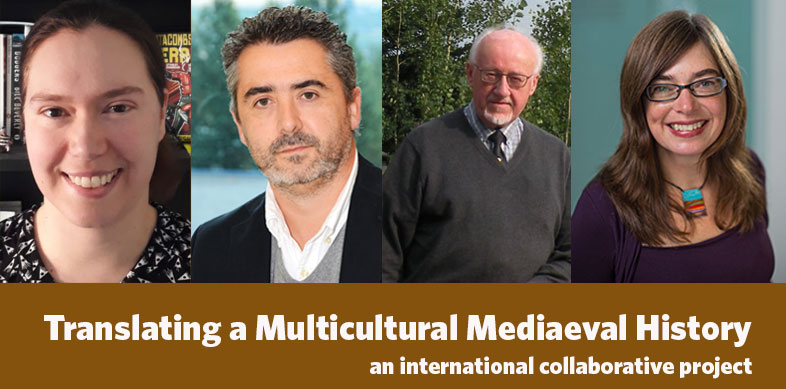With funding from the UBC Okanagan-Exeter Excellence Catalyst Grant, Dr. Francisco Peña is working with a team of researchers from the University of Exeter and UBC Vancouver to continue the work of translating General e Grand Estoria (GGE), the most expansive 13th-century book written in Spanish.
Commissioned by King Alfonso X of Castile, a.k.a., “el Sabio” (the Wise), the book was compiled by various contributors from different major religions, writing history together. The resulting publication is the first, and only, version of the Bible in which Christian, Jewish, Islamic, and apocryphal interpretations are accepted.
This project positions the General e grand estoria within the multicultural context of its production and re-evaluates the role of Judaism and Islam, as well as the Graeco-roman classical traditions, in the birth of Spanish and European historical writing and the beginnings of vernacular fiction.
“We are creating a new methodology of study, involving digital media, creating new tools for innovative interdisciplinary study of the Middle Ages,” says Peña, Associate Professor in the Department of Languages and World Literatures.
He adds that the translation this book into English will make the text more accessible to the modern reader while still capturing the flavour of the mediaeval original. Divided into six parts, the General e Grand Estoria narrates human history, from creation to year zero, including the biblical and non-biblical past, and the Jewish and non-Jewish past.
The research team includes Francisco Peña (UBCO), Katie Brown (Exeter), Derek Carr (UBCV), and Michelle Bolduc (Exeter). They been working together for 4 years, digitalizing the book, which is now accessible to the group in a shared online platform. Translators will work in that platform to create a written translation of the text, so that in the end, a reader can select the chapter, see a photo of the original manuscript, and then be able to read the text that is being translated.
This project will recruit students onto the Masters of Arts Translation Studies at Exeter and provide them with specialist training in translating mediaeval Spanish in La Rioja, Spain. Those students will work on the translation of the GGE over the course of their MA, allowing them to broaden their language skills, intercultural understanding, and employability through involvement with an international, interdisciplinary team.
“This project provides work experience for students, so that when they graduate and go into the job market, they come with experience of project management and working within a team,” Peña explains.
This pilot will build the long-term commitments necessary to successfully pursue an SSHRC Partnership Grant, which will be the foundation of the larger GGE study, translation, and subsequent publications.
Find out more about the Confluence of Religious Cultures in Medieval Histography project.
